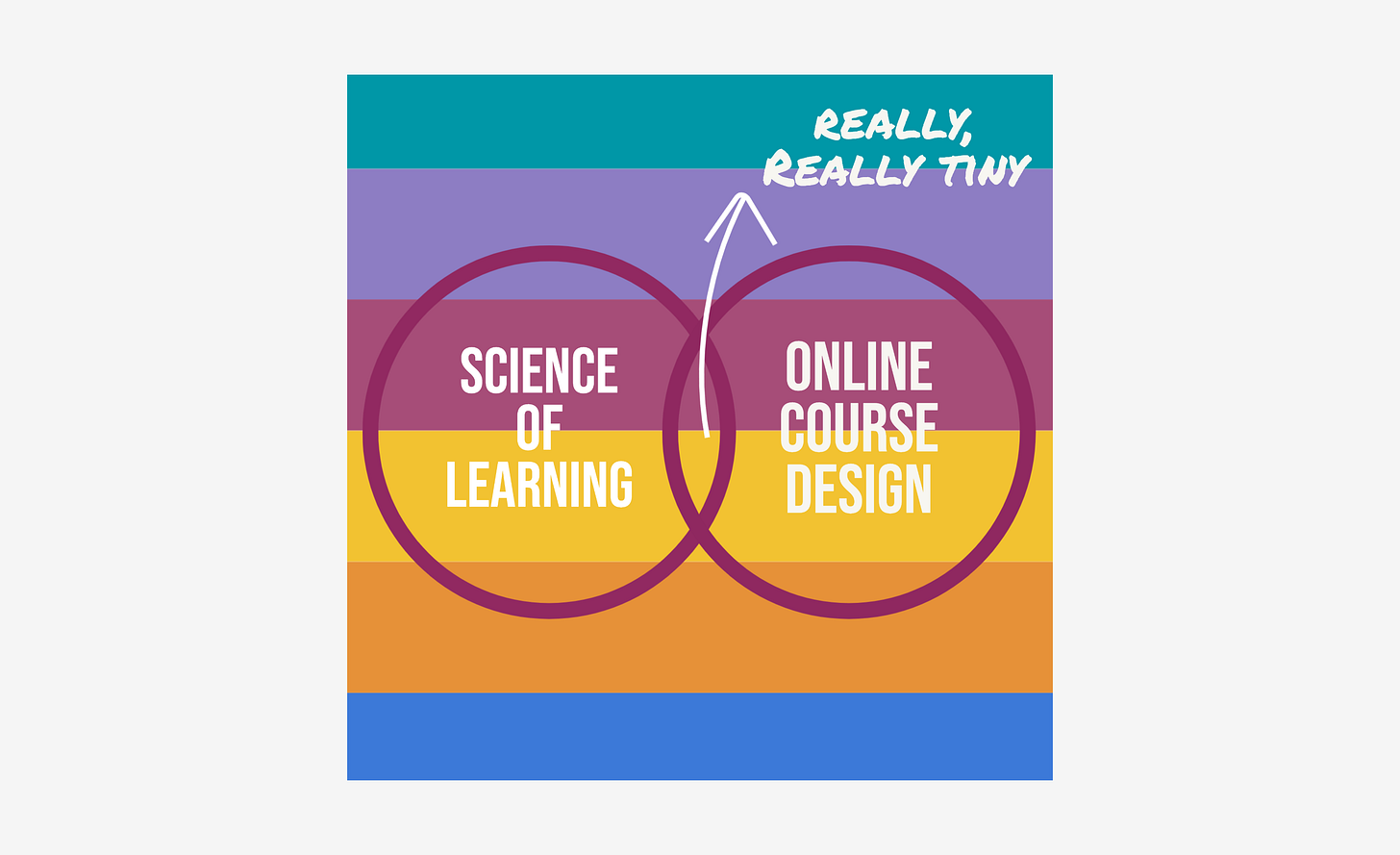The Learning Science 101 Framework™️
A 4-step framework to bake the learning science into your course design quickly & easily
A conversation on LinkedIn this week reminded me of what I consider to be the biggest barrier to progress in the world of online learning: our obsession with modes.
As course designers, we continue to debate the relative value of online Vs in the flesh learning experiences, concluding in most cases that the classroom is best.
But time and again, research shows that modes make no significant impact on the quality of a learning experience.
What matters is not how an experience is delivered, but how it’s designed.
Example A: a sage on the stage, slides-based presentation is as ineffective delivered in a room as it is delivered online.
Example B: a session where participants learn by solving a problem (rather than consuming content) is as effective online as it is in the flesh.
Today, I’m going share a simple, 4 step framework to help fast track your learning design skills and optimise your online [or in the flesh!] course for learner engagement, motivation & mastery.
_____
The Learning Science 101 Framework
The Learning Science 101 Framework takes a potent cocktail of learning science and translates it into a simple, four step process to help optimise your course for learner motivation and mastery.

I use this framework often to help clients transition from a content-first, lecture-based approach to a more active & outcomes-driven approach, which is proven to 10X levels of motivation & mastery of the subject.
I’d love to hear if and how the framework is helpful for you!
_____
If you want to learn more, here’s some related reading:
Aleven, V. A. W. M. M. & Koedinger, K. R. (2002, March–April), An effective metacognitive strategy: Learning by doing and explaining. Cognitive Science, 26(2), 147–179.
Butler, A. C., Karpicke, J. D. & Roediger, H. L., III. (2008). Correcting a metacognitive error: Feedback increases retention of low- confidence correct responses. Journal of Experimental Psychology: Learning, Memory, and Cognition, 34(4), 918–928.
Chi, M. T. & Wylie, R. (2014). The ICAP framework: Linking cognitive engagement to active learning outcomes. Educational Psychologist, 49(4), 219–243.
Mazur, E., Peer Instruction: A User’s Manual (1997)
Happy Designing 👋
One more thing…. You can apply for a place on my Course Design Accelerator here. It’s a four week, hands-on, cohort-based design sprint where we work together to design or redesign a course of your choice using the science of product + learning.
If you’re a fan of learning science, you may also want to subscribe to the Learning Science Digest, a monthly summary of peer reviewed research on learning science, translated into easy to apply course design practices - check it out!



Dr Phil, do you know of examples or research where this framework has been applied to learning motor skills like a sport?